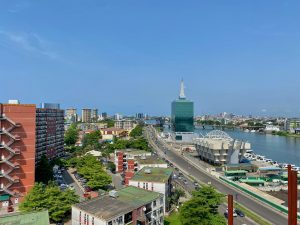Global brands land in African markets with big budgets, bold ambitions, and boardroom confidence. But without a clear African PR strategy, they often hand communications to an intern with a template from their London office. Six months later, they’re wondering why their Africa market entry strategy feels like shouting into the void.
Let’s be honest. What makes waves in Berlin won’t move the needle in Bamako. What gets picked up in Paris might be completely ignored in Port Harcourt. Yet the same PR mistakes in Africa keep happening, even from brands that should know better.
When public relations in Africa is treated as an afterthought, everything else suffers. In markets where word-of-mouth drives buying decisions, being unknown is more than a marketing gap. It’s the kind of risk you won’t even see until it’s too late.
African PR Strategy: Why Most Africa Market Entry Strategies Fail at the PR Stage

In markets where conversations drive commerce, relevance isn’t automatic. It is earned.
The brands that succeed don’t just launch products. They launch presence. They understand that entering the market also means earning the right to be part of it.
That requires PR strategies for African markets built in from day one. Not added six months later.
This post covers five PR mistakes global brands make in Africa, and how successful companies can avoid them.
1. Copy-Paste PR
Some press releases announcing an African expansion read like internal memos. No local voice. No real context. Nothing that speaks to the people it’s meant for.
That’s a problem.
Releases written from global HQ often miss what really matters: the community being addressed. A quote from a London-based CEO won’t land if it ignores local realities.
When Spotify launched in Nigeria, they didn’t just announce “African expansion.” They talked about Afrobeats. They spotlighted Nigerian artists. That’s how they sounded like they belonged. They showed they understood the local music ecosystem they were entering. Not like they were passing through.
That’s how you show up as a partner, not a passerby.
2. Chasing Global Headlines, Ignoring Local Credibility
A TechCrunch feature might impress your board, but it won’t sell a single product in Kano.
Too many brands chase global headlines. Forbes, CNN, Bloomberg. And ignore the platforms that actually move people on the ground. They want international prestige but won’t invest in local radio, community media, or trusted outlets like Punch, BusinessDay, or TechCabal.
It sends a clear message: you’re here, but not really speaking to us.
Real credibility starts with showing up where your audience already is. In Nigeria, that might be Channels TV or ThisDay. In Kenya, it could be Daily Nation or Capital FM. Understanding the African media landscape is core to any successful brand expansion PR effort.
Global Misfire, Local Lesson: Bell Pottinger in South Africa (Case Study)
In 2016, UK-based PR firm Bell Pottinger ran a racially divisive campaign in South Africa to divert corruption allegations against their client. It backfired massively. Civil society and the media pushed back. The UK’s PR body expelled the firm. Months later, the company collapsed.

Even though this didn’t happen in West Africa, the takeaway is clear. Manipulating local dynamics from afar is a recipe for disaster.
The bottom line: the global press can boost perception. But if you ignore local credibility in African markets, you’re not building influence. You’re borrowing it.
3. Separating PR from Performance – And Crippling Results
Too many brands still treat PR and performance marketing like they live in separate worlds. PR is all about stories and headlines. Performance is all about conversions and CAC. The two teams barely talk.
In African markets, where trust is earned slowly and awareness is still half the battle, that gap costs you.
Here’s how it plays out. Your PR team lands a solid mention in local tech media. Your media buyers don’t even know. Meanwhile, your ads are asking people to buy from a brand they’ve barely heard of.
The brands getting real traction treat PR and performance as one system. When a founder gets quoted in BusinessDay, they turn it into a retargeting ad. When they sponsor a tech event, they see a search lift. They don’t just chase headlines. They turn them into traction.
Want to see the full breakdown on how performance marketing fails in African markets, and how smart brands use earned media to fix it? Read the full post.
When PR and performance work together in Africa, Customer Acquisition Cost (CAC) drops, Return On Ads Spent (ROAS) climbs, and your brand stops feeling foreign. It starts to belong.
4. Responding to Crises Like You’re Still Abroad
When a crisis hits, speed and cultural nuance matter more than polish. But too often, brands wait for global HQ to draft a carefully worded holding statement. By which time, the conversation on the ground has already turned hostile.
In African PR crisis situations, issues spread fast. Especially through platforms like Twitter, Facebook, radio shows, and WhatsApp. Silence is often seen as guilt. Slow, foreign-sounding responses only make things worse.
What MTN Nigeria Got Wrong And Eventually Right
In 2015, MTN Nigeria. Africa’s largest telecom brand. Faced a storm. The Nigerian Communications Commission (NCC) fined the company $5.2 billion for failing to disconnect unregistered SIM cards.
At first, MTN’s response came from its South African headquarters. It was slow, corporate, and disconnected from the local mood. As public outrage grew, the brand was seen as evasive and out of touch.

The tide only began to turn when local leadership stepped in. MTN Nigeria’s CEO began engaging directly with Nigerian regulators, the media, and the public.
That shift didn’t just help reduce the fine. It helped rebuild trust where it had been lost.
If there’s one lesson here, it’s this. In fast-moving African markets, crisis communication must be local, fast, and culturally fluent. You don’t have the luxury of silence or distance.
5. Thinking PR Ends After the Launch
A big product launch. A glitzy press event. A round of media features. And then… nothing.
It’s the classic mistake. Brands see PR in Africa as a one-off moment, not an ongoing relationship.
Audiences here are used to brands disappearing after launch. And they’re equally quick to forget them. Trust is built through sustained presence, not one-day visibility.
What to Do Instead:
- Stay in the conversation.
- Share updates.
- Provide expert commentary.
- Collaborate with cultural voices.
- Sponsor relevant events.
African PR isn’t a sprint. It’s a long game.
Nigerian PR Strategy: What Actually Moves the Needle
With over 200 million people, 500+ languages, and media networks that stretch from national headlines to neighborhood conversations, getting PR right in Nigeria takes more than good intentions.
The brands crushing it here understand a few non-negotiables:
- Radio still rules outside Lagos. While digital reach gets most of the attention, stations like Ray Power FM and Nigeria Info shape public opinion across Nigeria’s middle belt and northern regions. Very often, more than podcasts or blogs.
- Religious and traditional leaders matter more than celebrity endorsements. A recommendation from a respected imam in Kano or a traditional ruler in Enugu carries more weight than a Nollywood star’s Instagram post.
- Nigerian Twitter is its own ecosystem. What trends there don’t always reflect broader sentiment, but it strongly influences media coverage. Brands that understand this nuance, like Paystack before their Stripe acquisition use Twitter strategically without mistaking it for the entire market.
- Local partnerships beat global voices. When Uber was fighting regulatory battles, their most effective PR came through driver associations. Not SF-based comms.
The biggest mistake? Treating Nigerian PR strategy like it’s just “African PR with more people.” It’s not. It’s a unique media market that rewards brands who respect local influence structures.
Read Also – How to Enter African Markets: Industry-Specific Strategies That Work
The CMO’s Guide to Brand Expansion PR Across Africa
Every CMO faces the same pressure when expanding to African markets: prove ROI fast while building for long-term success. PR becomes the bridge between those two demands.
- Start with earned media mapping before hiring an agency.
- Choose PR partners based on local credibility, not just global clout.
- Budget for sustained activity, not just flashy launches.
- Measure relationship depth, not just reach.
- Plan for cultural and regulatory surprises.
In African markets, relationship capital outperforms paid reach. And knowing what not to say is often just as powerful as what you do.
The Real Work Starts Now
PR in African markets isn’t about importing your playbook and hoping it works. It’s about rhythm, relevance, and respect.
The brands that succeed here do the homework. They invest in local PR relationships before they need them. They treat cultural nuance as a competitive advantage. Not just a compliance requirement.
Most importantly, they understand that African PR isn’t about announcing your arrival. It’s about proving you plan to stay.
When you earn your place in the market, you don’t just launch a product. You launch a legacy.
It becomes the foundation for lasting relevance in markets that don’t play by your old rules.





